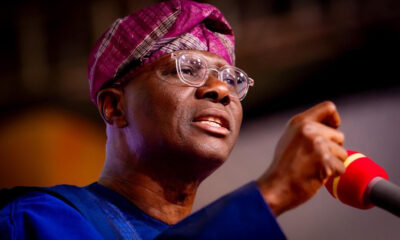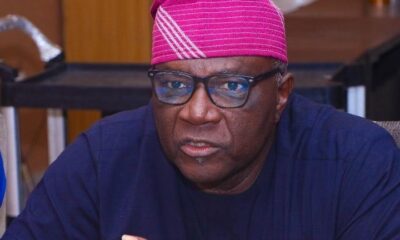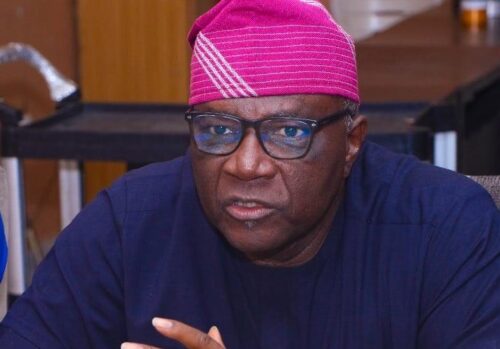Minister of Power has pledged to address the N4tn electricity debt owed by GenCos, which saw the electricity distribution companies threatening a shutdown on Monday.
Weighing in on the development, the special adviser to the Power Minister, Bolaji Tunji, said the government is aware of the development and is making concrete steps to resolve the lingering issue.
He said as part of the steps taken by the government, the Ministry of Finance will take charge of the payment very soon.
The media aide responding in a chat on Monday said, “We are not unaware of this debt arising from the FG’s commitment on subsidy. Part of the debts are legacy debts, which were on the ground before the Minister of Power assumed office.
“The Minister of Power has repeatedly harped on this, knowing the implication of such debts to the operations of the various power sector stakeholders, especially the GENCOs. The Minister of Power is very much concerned.
“The issue is being discussed with the Ministry of Finance, making a case for how the debt must be paid. We expect the Ministry of Finance to take action on this soon.”
A nationwide blackout looked imminent as the 23 power generation companies warned that they can no longer guarantee a steady electricity supply due to the worsening liquidity crisis in the electricity market, with outstanding debts now exceeding N4tn, comprising N2tn for power supplied in 2024 and N1.9tn in legacy debts.
The firms, under the aegis of the Association of Power Generation Companies, raised the alarm in a statement issued on Monday and signed by the Chairman of the Board of Trustees, Col. Sani Bello (retd.).
They said the debt burden and operational constraints currently facing the companies could force an imminent shutdown of power plants if urgent interventions were not implemented.
The companies noted that plants were being paid less than 30 per cent of monthly invoices for power supplied to the national grid.
They warned that the continued non-payment for electricity generated and consumed on the national grid was pushing the Nigerian power sector towards a total collapse.
The statement, titled ‘Over N4tn unpaid invoices threaten GenCos imminent shutdown’, lamented the lack of a clear financing plan from the Federal Government, alongside worsening fiscal and operational constraints within the Nigerian Electricity Supply Industry.
They also accused the Nigerian Bulk Electricity Trading Plc and other stakeholders of neglecting GenCos in the application of the NESI’s “waterfall arrangement”, which sees other service providers receive 100 per cent of their market invoices while GenCos get as little as 9 per cent to 11 per cent of what is due.
The statement read, “The Power Generation Companies (‘GenCos”) are constrained to issue this press release to draw the attention of the Federal Government and key stakeholders to the need to urgently address the issue of inadequate payment for electricity generated by them and consumed on the national grid, which is currently threatening the continued operation of their power generation plants.
“Against the backdrop of the many challenges facing the power sector in Nigeria, the crises from cash liquidity are on the top burner and have reduced GenCos’ ability to continue to perform their obligations, thereby threatening to completely undermine the electricity value chain.
“In light of the severity of the issues highlighted above, the GenCos are requesting that immediate and expedited action be taken to prevent national security challenges that may result from the failure of the GenCos to sustain steady generation of electricity for Nigerians.”
Recall that in February, the Minister of Power, Adebayo Adelabu, disclosed that the government owes electricity generation companies and electricity distribution companies over ₦4 trillion in electricity subsidies.
Giving a breakdown, the minister said N2 trillion is owed to GenCos as legacy debt, while another N1.9 trillion is owed to them as part of the electricity subsidy for 2024, while DisCos are owed N450 billion for the 2024 electricity subsidy.
In the statement released under the umbrella of the Association of Power Generation Companies, the GenCos expressed deep frustration over what they described as “inadequate payment for electricity generated and consumed on the national grid. They described it as a major threat to the viability of their power plants.
The group said despite investing significantly in ramping up generation capacity since the sector’s privatisation in 2013, the absence of firm contracts, poor enforcement of power purchase agreements, and persistent non-payment of invoices have crippled their operations.
The companies also pointed out that hopes of being settled through external support mechanisms like the World Bank’s Power Sector Recovery Operation have been dashed due to other market players’ failure to meet required performance targets.
The statement stated, “GenCos, on their part as responsible investors with patriotic zeal, have made large-scale investments and have continued to demonstrate absolute commitment by ramping capacities in line with their contract over these 10 years, amid system constraints, policies & regulations that are not investor-friendly, increasing debts owed by the FGN without a clear financing plan, a lack of firm contracts and a market without securitisation but based on best endeavours, thereby hampering future planning.
“Notwithstanding this and other severe difficulties the GenCos have battled with since takeover in 2013, they have kept to the terms of their contractual agreements by ramping up capacity, which has been largely constrained systemically.
“Against the backdrop of the many challenges facing the power sector in Nigeria, the crises from cash liquidity are on the top burner and have reduced GenCos’ ability to continue to perform their obligations, thereby threatening to undermine the electricity value chain completely.
“The GenCos expectations of being settled through external support, such as the World Bank PSRO, have also been dampened due to other market participants’ inability to meet their respective distribution-linked indicators, enshrined in the Power Sector Recovery Program.”
To avert a total shutdown of power generation across the country, the GenCos issued a list of urgent demands to the Federal Government:
The GenCos warned that unless urgent and coordinated steps are taken to address the liquidity crunch, Nigeria’s electricity supply could collapse, with dire consequences for national security, economic growth, and public welfare.
The GenCos added, ” In light of the severity of the issues highlighted above, the GenCos are requesting that immediate and expedited action be taken to prevent national security challenges that may result from the failure of the GenCos to sustain steady generation of electricity for Nigerians.
“The 2024 collection rate has dropped below 30 per cent, and 2025 is not any better, severely affecting GenCos’ ability to meet financial obligations. Tax and Regulatory Challenges: High corporate income tax, concession fees, royalty charges, and new FRC compliance obligations are further straining GenCos’ revenue. GenCos are currently owed about N4 trillion (N2 trillion for 2024 and N1.9 trillion in legacy debts). No possible solutions, including cash payments, financial instruments, and debt swaps, are in sight.
“The 2025 government budget allocates only N900 billion, raising concerns about its adequacy to cover arrears and future payments. The power generated by GenCos has continued to be consumed in full without corresponding full payment, notwithstanding the commencement of the Partial Activation of Contracts in the NESI, which took effect from July 1, 2022; the minimum remittance order; bilateral market declaration; waterfall arrangement; the risks of inflation; forex volatility with no dedicated window to cushion the effect of the forex impact; or the supplementary MYTO order, which leaves about 90 per cent of GenCos monthly invoices unmet without a bankable securitisation or financing plan. This situation has dire consequences for the GenCos and, by extension, the entire power value chain”.
The companies that called for the implementation of payment plans to settle all outstanding GenCos invoices observed that “the flow of money within the power industry is one of the fundamental problems preventing Nigerians from enjoying continued and sustainable improvement in electricity supply”.
Meanwhile, the Managing Director and Chief Executive Officer of the Niger Delta Power Holding Company of Nigeria, Engr Jennifer Adighije, says President Bola Tinubu is intervening to settle the liquidity crisis in the power sector.
Adighije stated this recently while being honoured as the Young Achiever of the Year at the 2025 Energy Times Awards for her contributions to the power sector.
Speaking with newsmen at the award presentation dinner, the managing director described the award as a humbling experience, especially for a new management team that has been in the office for less than a year.
According to her, the central issue in the power sector is about liquidity, and once there is enough cash flow, the issue will be resolved.


 BIG STORY3 days ago
BIG STORY3 days ago
 NEWS4 days ago
NEWS4 days ago
 NEWS4 days ago
NEWS4 days ago
 BIG STORY4 days ago
BIG STORY4 days ago
 BUSINESS2 days ago
BUSINESS2 days ago
 NEWS4 days ago
NEWS4 days ago
 ENTERTAINMENT9 hours ago
ENTERTAINMENT9 hours ago
 BIG STORY3 days ago
BIG STORY3 days ago


















